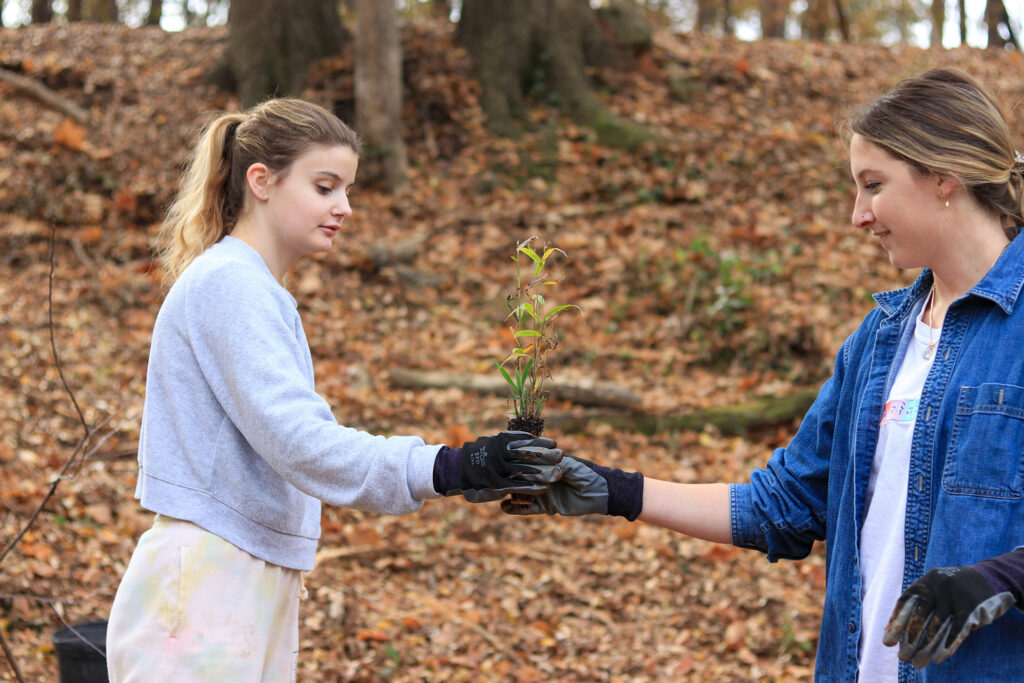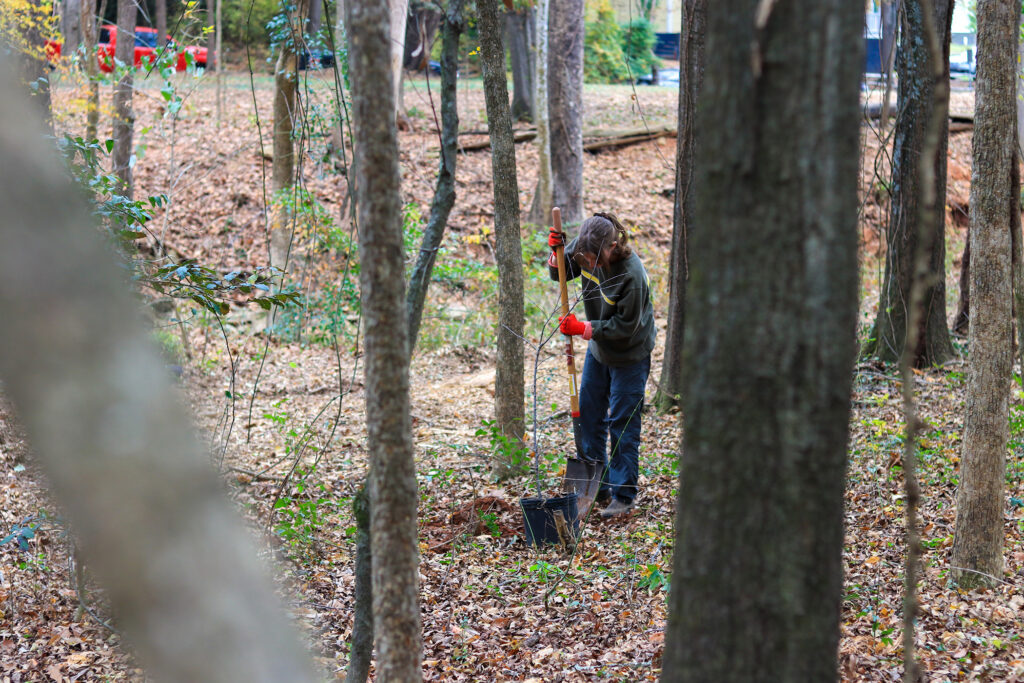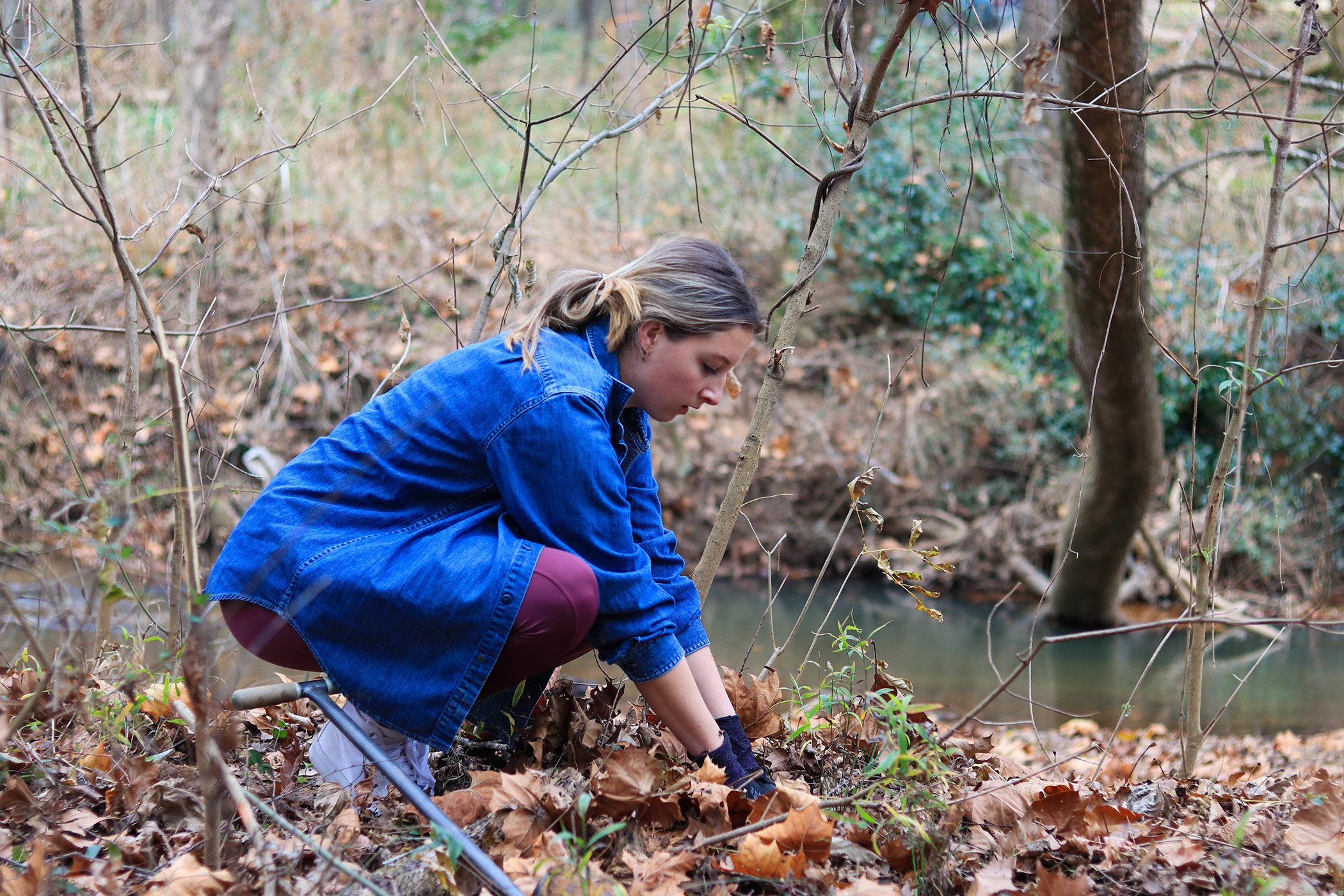In late November, 30 students and community members gathered in Dudley Park to plant a total of 49 trees and 1,000 native grasses and pollinator-friendly plant species. The Athens-Clarke County Restore Our River Project initiative is an effort to restore wildlife habitat alongside the North Oconee River in Athens. Because Dudley Park is adjacent to Trail Creek, the plants and trees will also help improve water quality and mitigate erosion issues.
The Dudley Park event was a collaboration between the UGA Office of Sustainability, Athens-Clarke County Sustainability Office and the Athens Area Community Foundation, with grant funding from One Tree Planted and the Caterpillar Foundation.
“We are so fortunate to have access to outdoor spaces to recreate, or simply be, and we have an opportunity to help restore these landscapes so that they continue to support our community and all the living creatures which depend on them,” said Kevin Kirsche, director of sustainability at the University of Georgia.
This event was about more than habitat restoration. It was also about education. Volunteers learned that their work would help restore parts of the park to a pocket prairie — a type of meadow that is unique in the state of Georgia.

“These types of ecosystems have been diminished a lot, so it’s really important for us to restore ecosystems that are native to Georgia,” said Jolene Gale, UGA Office of Sustainability natural resources intern.
The ACC Restore Our River Project will restore public lands along a one-mile section of the North Oconee River — allowing those areas to receive the vegetation they need to support native wildlife and improve the health of local streams. With over 70 acres to tackle, community collaboration is key for this project’s success.
“I think it’s important for us as UGA students to realize that we are a part of a bigger community,” said Erin Naff, UGA student volunteer.

When it comes to restoration projects, planners have to consider and incorporate a variety of factors. Because the Restore Our River Project is focused on wildlife management, local leaders evaluated the needs of all the different species they intend to support. This means ensuring nesting spots and winter cover for birds, year-round habitat and food sources for pollinators such as monarch butterflies, and strategies to enhance water quality to support aquatic life in our streams.
“If we have these collaborative efforts, we can create this patchwork mosaic across the landscape and work together to improve things,” said Betsy Kurimo-Beechuk, ACC ecological resource coordinator.
The UGA Office of Sustainability and ACC Sustainability Office look forward to continued collaboration to engage in experiential learning and action to enhance our community and shared natural resources.
“I think it’s really important to give back and view the environment as something we are a part of and something we want to protect for our future generations,” Naff said.


